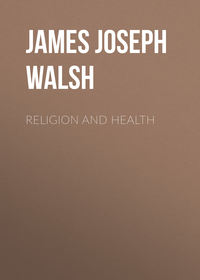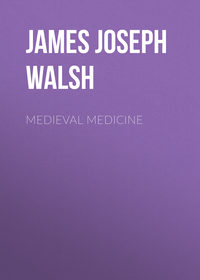 полная версия
полная версияHealth Through Will Power
1
"Tour in England, Ireland and France."
2
The word has, by the way, the same meaning as rheumatism, which is also from the Greek verb, to flow, though its application is usually limited to the serous membranes of the joints or the serous surfaces of the intermuscular planes. By derivation, catarrh is the same word also as gout, which comes from gutta in Latin, meaning a drop and implying secretory disturbances. These three words—catarrh, rheumatism, gout—have been applied to all sorts of affections and are so general in meaning as to be quite hard to define exactly. They have for this very reason, their vagueness, become a prolific source of unfortunate suggestion and of all kinds of dreads that disturb health.
3
Journal of the American Medical Association , January 4, 1919.
4
It is true that there is a particular phase of our intellectual effort included under the modern terms unconscious or subconscious that is mysterious enough to deserve a special name, but we already have an excellent term for this quality which is not vague but thoroughly descriptive of its activity. This is intuition,—a word that has been in use for nearly a thousand years now and signifies the immediate perception of a truth,—by a flash as it were. We may know nothing about a subject and may have only begun to think about it, when there flashes on us a truth that has perhaps never occurred to any one else and certainly has never been in our minds before. It has been suggested in recent years that such flashes of intelligence are due to the secondary personality or the subliminal self or the other self, and it is often added that it is the development of our knowledge of these phases of psychology that represents modern progress in the science of mind. Only the term for it is new, however, for intuition has been the subject of special intensive study for a long while. Indeed, the reason why the old-time poet appealed to the muses for aid and the modern poet suggests inspiration as the source of his poetic thought, is because both of them knew that their best thoughts flash on them, not as the result of long and hard thinking, but by some process in which with the greatest facility come perceptions that even they themselves are surprised to learn that they have. To say that such things come from the unconscious is simply to ignore this wonderful power of original thought, that is, primary perception. Emerson suggested that intuition represented all the knowledge that came without tuition, as if this were the etymology, and the hint is excellent for the meaning, though the real derivation of the word has no relation to tuition. To attribute these original thoughts to the unconscious or any partly conscious faculty in us is to ignore a great deal of careful study of psychology before our time. It is besides to entangle oneself in the absurdity of discussing an unconscious consciousness.
5
The use of whiskey for snake-bite probably has no other significance than this lifting of the scare. It used to be said that the alcoholic stimulation neutralized the depressant effect of snake poisoning on the heart. Now we know that this is not true, and in addition, we know of no effect that alcohol in the system might have in neutralizing the presence of the toxic albumin which constitutes the danger in snake poisoning. It is only rarely that the bite of a rattlesnake will be fatal. Experts declare that the snake must be a large one, its sting must be inflicted on the bare skin, it must not have stung any one so as to empty its poison glands for more than twenty-four hours, and the full dose of the poison must be injected beneath the skin for the bite to be fatal. Very rarely are all these conditions fulfilled. When a person is bitten by a snake, however, the terror which ensues is quite sufficient of itself to hurt the patient seriously and he may scare himself to death, though the snake poison would not have killed him. The whiskey lifts the scare and gives nature a chance to neutralize the poison which she can usually do successfully.
6
A curious discovery has been made in recent years that orange skin contains a very precious element essential for bodily health, belonging to the class of substances known as the vitamines and contains more of it than any other food material that we have. The instinct which tempted so many of us as children to eat orange skin, in spite of the fact that we were discouraged from the practice, was founded on something much more than mere childish caprice. Orange skin is after all the basis of marmalade which has been so commonly used by the English people at breakfast and which is at once a tasty and healthful material.









